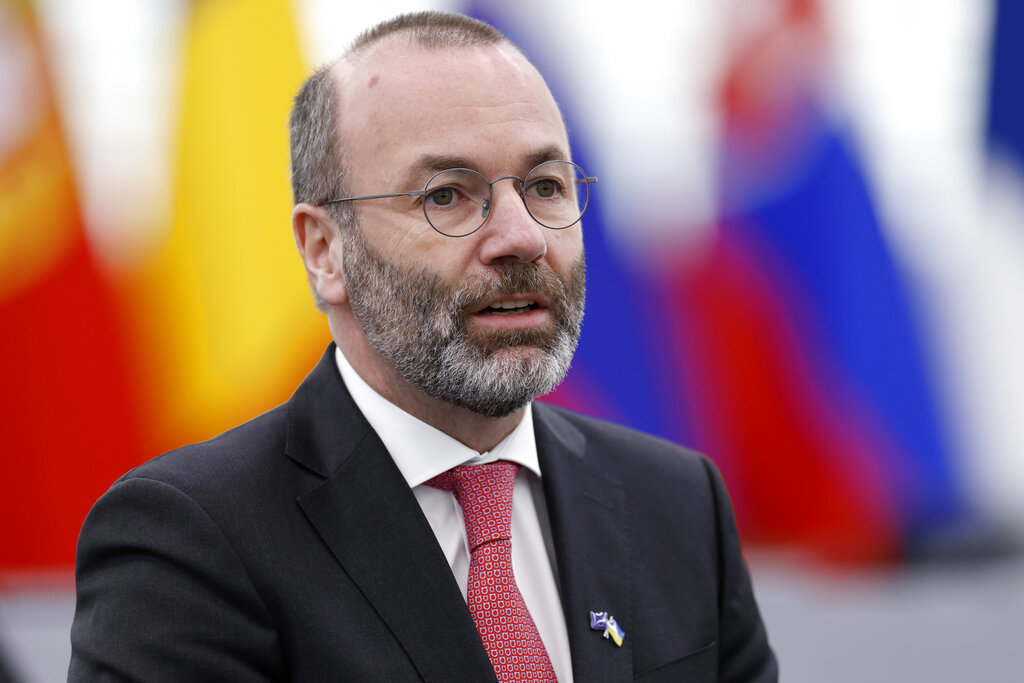A commentary piece by Mandiner guest author László Dornfeld, senior analyst at the Center for Fundamental Rights
The news that a new corruption scandal has broken out in Brussels may not come as a surprise to anyone. This can no longer be considered a system error in the center of the European Union, it is part of normal operation, where impunity is guaranteed by the fact that the left-liberal forces cover up each other’s crimes. In addition to President Ursula von der Leyen’s vaccine scandal and questionable appointment cases, as well as the Eva Kaili case involving the socialists, we can also note the corruption case that has erupted around the house of the European People’s Party (EPP). These are the same people who constantly attack our country with alleged abuses and lecture us every day.
The protagonist of the current case is none other than the French cabinet head of Manfred Weber’s European People’s Party, Ouarda Bensouag, who has also held the position of EPP secretary general since November 1. The charge against her is that she pocketed EU taxpayers’ money twice from the budget of the European Parliament – illegally. According to the accusations, she simultaneously took her salary from the European Parliament as its official and from her party as a political functionary, which is prohibited by the rules. This is by no means the first strange case of Weber’s confidant, as her husband is the influential Michael Alexander Speiser, close to the CDU, who works as the director of the EU parliament. A high-ranking EU parliament official described his appointment as “close to nepotism.”
The case could not have come at a worse time for EPP leader Manfred Weber, as he has to face divisions within his party, which even Politico mentions. It happened that Thanaszisz Bakolasz, the general secretary of the EPP faction, which is organizationally separate from the party, wanted to fire one of Weber’s Belgians, Tom Vandenkendelaere, at the beginning of October, even though the People’s Party president had already selected him for a directorship. Weber reacted hastily to this and wanted to appoint the person concerned as his chief of staff, but Bakolasz did not agree to this. All of this points to internal tensions with Weber — even if he emerged victorious, as Vandenkendelaere was finally appointed.
Like Donald Tusk, Manfred Weber is a good reflection of what someone becomes if they spend too much time as part of the Brussels power machine. Lust for power has destroyed a man once considered a rising star in European politics, who modeled his own politics on Angela Merkel. He was the youngest member of the Bavarian parliament, the youngest group leader of the European Parliament and the youngest ever president of the People’s Party. At the time, he was described as having “no ego,” having difficulty making personal decisions, and being extremely reserved and moderate. Today, when we look at Manfred Weber, these are not the first words that come to mind. The change in his colors clearly shows why Fidesz decided to leave the People’s Party.
Weber became the leader of the EPP faction in 2014, and the first setback in his career – and in his personality – was caused by his failure to compete for the presidency of the European Commission. He had already come out against Hungary; it is memorable when he declared in 2018 that “I voted against all of Hungary with Article 7. Not Fidesz, not Viktor Orbán, but against the whole country.” And in 2019, when he ran for the mentioned position, he told the Hungarian prime minister that he did not want to become the commission head with the votes of Fidesz.
It didn’t happen for Weber. Instead, the leaders of the member states voted for Ursula von der Leyen. Weber even tried to become the president of the EP, but he did not achieve much success here either, so he preferred to consolidate his power within the People’s Party. He installed people loyal to him in key positions in the EPP and removed potential critics and rivals. For example, Ouarda Bensouag, who is involved in the current scandal, was appointed head of the cabinet. Politico directly writes that he is tightening the reins around the EPP with his personal decisions, so now Weber – as the leader of the largest faction – has become the second most important player in Brussels politics after von der Leyen.
Weber made it clear: Only those who support Ukraine, the rule of law and Europe, i.e., Brussels can be members of the People’s Party.
By the way, Weber’s relationship with the chairman of the committee is not cloudless either, and there are many signs that he still wants the coveted position for himself. In Brussels circles, he tries to outdo the president on the most important political issues, such as war and migration, and we also got a taste of the fact that he is still one of the representatives in the EP who most vehemently attacks our country. He also clashed with von der Leyen in 2023 over a Spanish national park. According to an EPP speaker, his goal was to humiliate his rival, as “Weber wants to win at all costs.” Unfortunately, von der Leyen proved to be a better schemer than him and was able to stay in the saddle for another five-year term.
This is not the first such scandal within the ranks of the EPP. In 2022, Mario Voigt, director of online appearances for Weber’s 2019 EU campaign, was prosecuted for profiting by selling face masks during the coronavirus pandemic. In connection with this, the Belgian police raided the offices of the EPP in 2023. And in relation to the already mentioned Tom Vandenkendelaere, the authorities conducted an investigation because of a trip that was financed by others, but in the end, there were no consequences.
All this clearly shows what Manfred Weber has become after spending a decade in the circles of the Brussels power elite. Someone who, in a cynical and hypocritical manner, demanded more transparency and strictness from the EU parliament during the Kaili scandal, while his own people were all rotten to the core. If we look at Weber today, the image of a mediocre intriguer and ambitious social climber emerges in front of us. He is frustrated by his own failures and wants to take revenge on the perceived or real source of his troubles — that is why he is such a good friend of Péter Magyar, who he sees as a useful tool for this. He primarily blames Viktor Orbán and Hungary for his loss of the presidency, which is why he is particularly active in all initiatives against them.
As tightly as he holds the reins, what Péter Magyar might have meant when he talked about “having to give up a little sovereignty” emerges in front of us: In all matters, we have to follow the line dictated by Brussels. Weber made it clear: Only those who support Ukraine, the rule of law and Europe (i.e., Brussels) can be members of the People’s Party. Moreover, Magyar is forced to support him because the EPP also has the issue of his immunity, the loss of which hangs over his head like the sword of Damocles. Therefore, we should not be surprised if Péter Magyar and the Tisza Party support the migration pact and attack the utility price reduction, since this is what Weber expects from him.






